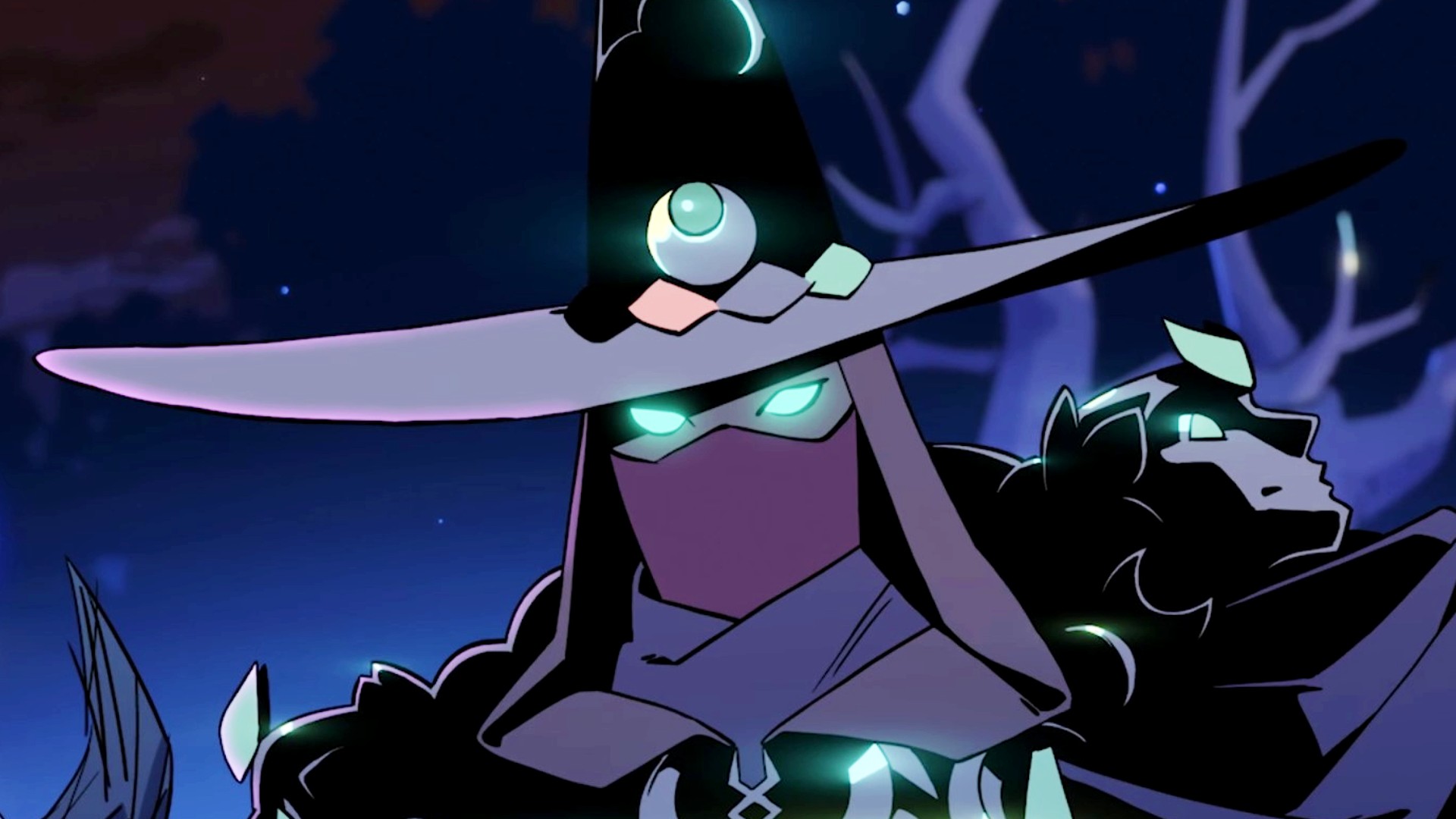Copyright pcgamesn

The mythology of Aphrodite is perhaps one of the most well-known. As the Goddess of love and fertility, Aphrodite is known as having been borne from a suggestive substance that came from the severed genitals of Uranus. It was suggested that the genitals were thrown into the sea by Cronus, the son of Uranus, and thus Aphrodite also became known as a goddess of the sea. The more famous representation as the Goddess of Love is used in Hades 2, though, as Aphrodite appears as a beautiful, nude woman, with pink-toned skin, and luscious pink hair covering her body. Aphrodite was also known to have been betrothed to Hephaestus, who also appears in Hades 2. Given the mismatched partnership, Aphrodite supposedly had an affair with Ares, the God of War. Given Aphrodite's relationship to Cronus and Hephaestus, perhaps more of her story with the two other Hades 2 characters will play out. While Ares was in Hades, we don't yet know if the God of War is set to make an appearance in Hades 2. In Hades 2, Apollo is the God of Light, but, from mythology, is actually the god of a lot of things (as many gods were). A god that's appeared many times in ancient Greek culture, often depicted with a lyre, quiver and bow, and a raven. Supergiant is seemingly combining the bow and lyre for their interpretation, as Apollo is pictured in-game holding a bow with many strings, mimicking the look of a lyre. While Artemis is also known as the Goddess of chastity and childbirth in some Greek mythology, Supermassive has more aptly chosen to use her more widely known status as Goddess of the Hunt for Hades 2. Greek mythology also places Artemis as the twin sister of Apollo, but mostly in the lore of her being the childbirth goddess, given that she is birthed first and proceeds to help her mother, Leto, give birth to Apollo. Whether or not this relationship will play out in Hades 2 remains to be seen, but we wouldn't expect so, given that the focus is on Artemis as a huntress. No other confirmed Hades 2 characters are particularly close to Artemis, but her father is Zeus, so she is linked to most other characters through the paternal line. Interestingly, as you can see in the screenshot above, Artemis immediately refers to Melinoë as "sister", though whether she means this literally of course is a mystery. As the daughter of Zeus, she is, of course, but as far as we are aware, Melinoë doesn't believe Zeus to be her father. Charon is the Stygian Boatman, in other words, the ferryman who sails the dead into the underworld. According to Greek myth, the crossing required payment, and those who could not pay were not given passage, but instead left to wander the shores for eternity. As such, the Greeks often placed a coin in the mouth of their deceased to ensure they had payment upon arrival. This theme of payment is very relevant to Charon's character in Hades 2, as he is a merchant of goods. In Hades 2, you can purchase items, such as Boons, from Charon in exchange for gold, which differs from the payments of Obols from the first game. Chaos, a confirmed non-binary character in the Hades series, has shifted their appearance from the original game to Hades 2. They now present with a pink and purple undercut, long gray hair, and flowing robes. Despite the appearance shift, they still exist to serve the same purpose - to mix up Melinoe's journey, offering powerful Boons that cast all normality aside. Chaos stems from "untold aeons ago" when they sprang forth Night and Darkness, and it is said that all living things descend from them. Demeter is known as the Goddess of the Harvest, or Goddess of Seasons, and is referred to as the latter in Hades 2. That said, the theme entwined into Hades 2 seems to be more about Winter and its effect on crops, given the names and effects of Demeter's Boons. As one of the siblings of Hades and Zeus, this is where things get a bit confusing, because Demeter is also Melinoë's Grandmother, as the mother of Persephone. Her connection to the paternal side of Melinoë's heritage is the complicated part, due to the interfamilial relations Zeus was known for. This is important because, as you can read below, Hades isn't the father of Melinoë, as we're led to believe in Hades 2, and as Melinoë herself believes. Like all of Chronos' children, Demeter is sure to be particularly interested in his demise. Eris is the personification of strife. She resists any form of order, whether implied through nature or enforced by the gods and goddesses. Despite that, Melinoe finds herself drawn to Eris repeatedly throughout Hades 2. Eris is also the final boss of the Ascent to Olympus and puts up quite the fight. She formerly wielded Exagryph, the Adamant Rail, which is a weapon found in the original Hades game and resembles a gun with an eagle shape upon it. If we take Hecate as a separate entity from Melinoë, as Supergiant has in Hades 2 as the woman clad in all-black robes, she's the goddess of magic, spells, the moon, and the night. In Hades 2, Hecate will assist Melinoë in her quest against Chronos, training her in the ways of witchcraft and combat. Shrines to Hecate would be placed at entrances to homes to ward off witchcraft and evil, according to many contemporary plays from the likes of Euripides and Aristophanes. We may also see connections to other gods from the first Hades, as Hecate helped Demeter search for her daughter Persephone in myth after she was abducted by Hades. The Homeric Hymn to Demeter also states that Hecate then acted as Persephone's companion when she traveled to the underworld to spend a third of every year with Hades (Greek myth is a tad confusing, don't worry about it), with Hecate's guidance often represented by the iconography of a torch. Hera is the Queen of Olympus, Zeus's wife, and is tasked with ensuring some order remains there. You can encounter her on your journey down to Tartarus, or up to the surface, and she will grant you powerful Boons. As the goddess of marriage and the daughter of the titans Hyperion and Theia, her sisters are Hestia, Demeter, Helios, Selene, and Eos. Whether they share the same parentage is a different matter. Are you learning not to question Greek mythology and familial ties by this point in the guide? You probably should. Heracles appears as an NPC at various encounters, similar to Artemis and Nemesis. He will set challenges, such as beating more enemies than he does within a set window of time, to earn greater rewards. You can gift him Nectar to receive his keepsake, but can only reach a maximum of three hearts in his relationship with you, with the third coming only when you have progressed the game's story. Heracles is a "monster of a man" and appears wearing a bear skin over his impressive mane and beard. He disagrees with witchcraft and poses a danger to anyone he encounters, as well as himself. You'll only come face-to-face with him on your journeys to the surface. The God of the Forge, Hephaestus, is known for crafting and metalwork, so is appropriately associated with such in Hades 2, offering boosts to Melinoë's defense and weaponry. As the ill-fated husband of Aphrodite, there could be some interaction between the two characters in Hades 2, but we wouldn't expect it to be friendly, given that Aphrodite chose to philander with Ares. Born lame, according to mythology, we can see Hephaestus is depicted in a wheeled chair, but he also seems to have a metallic prosthetic leg, presumably cast by himself given his talents. The Goddess of the Flame, Hestia naturally offers fire-themed Boons to Melinoë. She seems to have a great personality, referring to Melinoë as "hot stuff" as well as making other fire-related puns in her dialogue. The Goddess also refers to herself as "elderly", suggesting she is one of the elder Hades 2 Gods. This tracks with her mythology as she again is one of the siblings of Hades, making her an aunt to Melinoë. The name Hestia refers directly to the hearth, and the most common interpretation of the goddess is her affinity to a hearth in the home, thus warmth and family. This perhaps is another reason she speaks so casually and jovially to Melinoë, a member of her own family. Hestia is another of Chronos' five children, alongside Zeus, Hades, Hera, and Poseidon, so is another of the Hades 2 Gods we are sure will be particularly helpful in bringing their father, the main Hades 2 villain, to justice. Now, Hypnos is a god we can relate to. Also known as the Sleep Incarnate, Hypnos has so far been found, unsurprisingly, fast asleep in Hades 2. This follows the ending of the first game (another spoiler alert!) during which Hypnos falls into a deep sleep. His role in Hades was to greet Zagreus after his death, a role which seems to have been filled by Lord Moros in Hades 2. According to Greek mythology, Hypnos is the twin brother of the God of Death, Thanatos, who you'd also think would be connected to death in Hades 2. Thanatos did appear in Hades, but so far has not been confirmed for Hades 2. In the Iliad, Hypnos has a bad history with Zeus, having put him to sleep multiple times at the behest of Zeus' wife Hera, to be used as a victim of trickery. Naturally, Zeus was furious when he awoke, so presumably isn't the biggest fan of Hypnos. Regardless, we have no idea how Hypnos' story will play out in Hades 2 as we so far can't get him to wake, but we're sure there must be a reason for his presence in the Crossroads. Greek god Moros, or "Doom Incarnate", appears to Melinoë after several deaths, which relates to his mythology of doom, demise, and his immortality. Moros is also the son of Nyx, Zagreus' sort-of adopted mother in the original Hades, so it isn't too surprising that Moros looks to help Melinoë, as they'll likely have a pre-existing relationship. Ares helped you inflict the Doom effect in the first game, but it's unclear if Moros will be tied to that as of yet. So far, we know that Moros has a connection to incantations, and can be summoned using Doomed Beckoning at the cauldron.



